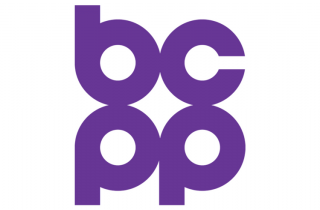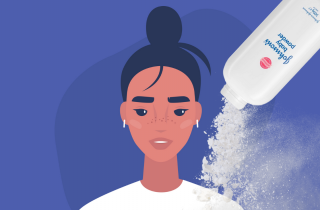VICTORY: Johnson & Johnson to Discontinue Talc-Based Baby Powder Globally
Company Still Needs to Take Responsibility for Women Hurt by their Products
AUGUST 15, 2022
See the full campaign timeline and path to victory
The Campaign for Safe Cosmetics welcomed the news that Johnson & Johnson will no longer sell its talc-based baby powder globally given our concern – and the concern of consumers everywhere – with the talc-asbestos-cancer connection. However, the multinational giant’s decision to discontinue global sales of its toxic baby powder, beginning in 2023, comes only after global pushback and a long battle with women’s health, environmental health, and justice organizations from around the world.
“We are celebrating the news that J&J will finally be removing its toxic talc from all of its global markets, but after its callous disregard for women’s health and shameful domestic and global predatory marketing, J&J still has a lot of work to do to regain the public’s trust,” said Janet Nudelman, Director of the Campaign for Safe Cosmetics and Director of Program & Policy at Breast Cancer Prevention Partners (BCPP).
Internal documents produced during J&J litigation revealed the company was aware since the late 1950s that the talc used in its Johnson’s Baby Powder was sometimes contaminated with asbestos, but failed to warn consumers or even FDA regulators. Scientists agree that there is no safe level of exposure to asbestos, a known human carcinogen linked to a mesothelioma and a multitude of other cancers. The use of talc in the perineal area is also linked to ovarian cancer.
The path toward this bittersweet victory was a rocky one: In May 2020, against the backdrop of 20,000 lawsuits filed by women claiming their ovarian cancer or mesothelioma was related to their use of Johnson and Johnson’s (J&J) talc-based powder, the healthcare giant took a baby step toward addressing the problem by announcing it would stop selling its 128-year-old iconic product in the United States & Canada.
A month earlier J&J issued a formal statement “in solidarity with Black Lives Matter” to J&J employees and its global customers in response to the protests spurred by the violent, racially-motivated deaths of George Floyd, Breonna Taylor, Ahmaud Arbery and others “affirming (the) company’s commitment to justice and equality” and “unequivocally stating that racism in any form is unacceptable, and that Black lives matter.”
However its statement followed the company’s decades long history of racist practices. Including internal company documents uncovered by a 2019 Reuters News investigation that revealed as U.S. sales declined, J&J began aggressively marketing its talc-based baby powder to Black and Latinx women despite its knowledge of the product’s link to ovarian cancer, even distributing free samples in Black churches and advertising on Spanish-language radio.
Outraged by J&J’s hypocrisy, disregard for the health of women of color, predatory marketing, and hollow commitment to racial equity, Black Women for Wellness Los Angeles (BWWLA) launched a U.S.-based campaign against J&J in June of 2020, a month after Johnson & Johnson announced it would discontinue sales of its talc-based J&J Baby Powder in the U.S. and Canada, while allowing existing inventory to be sold down in stores and while continuing to sell the controversial talc-based product in its global markets.
On July 8, BWWLA led a coalition of international partners including the Campaign for Safe Cosmetics in sending a letter to J&J demanding the company stop sales worldwide in order to protect consumers everywhere from the potential, serious adverse health effects presented by asbestos contaminated talc. This was followed by a week of global action against J&J in August of 2020. Over 200 groups from 51 countries signed onto a second letter that was sent to J&J reiterating the Campaign’s shared concerns. NGO partners from Mexico to the Philippines to Bangladesh joined the Campaign’s call to action demanding J&J stop selling its toxic talc.
“It took tens of thousands of lawsuits and two hundred NGOs to get J&J to finally do the right thing and end the global sale of its toxic talc,” said Janet Nudelman, Director of Breast Cancer Prevention Partners Campaign for Safe Cosmetics. “It is hard not to wonder if the 2023 expected launch of J&J’s new independent consumer company has something to do with the timing of this announcement, given how badly our Campaign has been tarnishing their brand.”
Learn more about the advocacy campaign to stop Johnson & Johnson from selling toxic talc
###
Breast Cancer Prevention Partners (BCPP) is the leading national science-based policy and advocacy organization working to prevent breast cancer by eliminating our exposure to toxic chemicals and radiation.
The Campaign for Safe Cosmetics (CSC) leads the movement to make beauty and personal care products safer for all. CSC protects people and the planet from toxic chemicals by educating the public; transforming the beauty industry to make products safer; and advocating for health-protective laws that benefit everyone regardless of where they live, work, or shop. As the original trailblazer for safe cosmetics, we focus on eliminating dangerous chemicals linked to cancer and other serious health concerns from beauty and personal care products.
Types: Press Release



